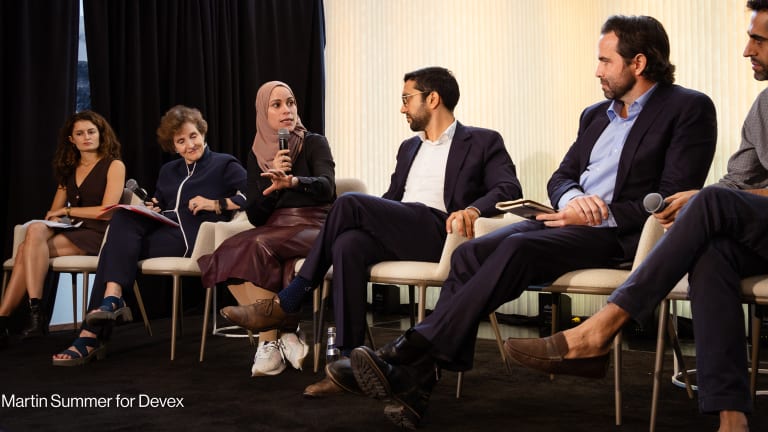The key issue holding up more private sector financing for sustainable development in emerging markets and developing economies isn’t raising money, it’s finding projects or companies to invest in, according to Arsalan Mahtafar, the head of J.P. Morgan’s Development Finance Institution.
“A lot of sustainable development can be done commercially,” he said, echoing his remarks at Devex’s Climate+ event on Thursday in Dubai. The binding constraint to more private money flowing to sustainable development is not a need for more de-risking or blended capital, but a need for data and information. Investment banks must meet their fiduciary responsibilities but also want to say they are doing so in a sustainable way that is verifiable.
JPMorgan Chase along with a group of other major financial institutions — Citi, Deutsche Bank, Bank of America, Goldman Sachs, and more — and industry groups have created the Impact Disclosure Taskforce to tackle the challenge. The aim is to help corporations and governments disclose their efforts to reduce gaps to achieving the Sustainable Development Goals.
This story is forDevex Promembers
Unlock this story now with a 15-day free trial of Devex Pro.
With a Devex Pro subscription you'll get access to deeper analysis and exclusive insights from our reporters and analysts.
Start my free trialRequest a group subscription







